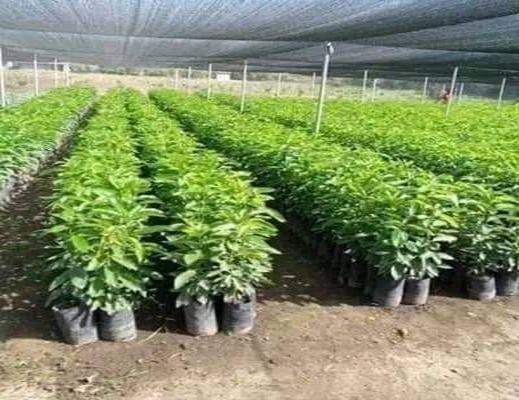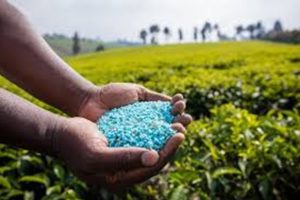
BY MENGISTEAB TESHOME
It is clear that Green Legacy emphasizes that initiative’s aim of re-establishing and protecting Ethiopia’s forest ecosystems with the plan of addressing environmental degradation through carbon sequestration, preservation of wildlife and biodiversity and mitigation of soil infertility.
Various international studies have suggested that the effects of climate change on the economy are making millions more vulnerable to poverty. According to the World Bank, more than 132 million people could be living in extreme poverty by 2030 as a result.
Various countries that have been affected by climate change and other crisis are beginning to pay special attention to climate change and are pursuing their agenda as part of their policy. Today, everyone is working on a solution to the global carbon crisis. Efforts are under way, but researchers say that in terms of carbon footprint, it is not working as well as it should.
“If you want to cope with climate change, you can’t think without tree above all else,” Experts in the field have repeatedly said that forest cover needs to be significantly increased in order to reduce the effects of climate change.
With the exception of climate change, the major environmental issues affecting Ethiopia are soil erosion and land degradation, deforestation and forest degradation, water scarcity, biodiversity loss, and various types of pollution.
Ethiopia intends to become carbon neutral without specifying a target year. To this end, it is in the process of developing a long-term strategy under the 2050 Pathways Platform, an initiative that supports countries develop long-term net zero pathways (2050 Pathways Platform, 2019).
In his recent remark of inauguration of the 2022 Green Legacy PM Abiy Ahmed noted that “Ethiopia’s Green Legacy Initiative-planting our print for future generations. It is to be recalled The Green Legacy initiative’ was launched in June 2019 is rooted in a vision of building a green and climate-resilient Ethiopia.”
Issuing a statement relating to the launch of Green Legacy program for 2022 that was held on June 21st with a target of planting 6 billion seedlings, the prime minister went on saying: “we are laying our foundation for multidimensional prosperity by leaving a climate smart generational legacy, during this rainy season.” PM Abiy added: “The energy we have harnessed in this process is a key learning to be applied to yielding greater results in our agricultural productivity.”
The July 29, 2019 challenge of planting 200 million seedlings within a 12-hour span and exceeded the challenge by planting 354 million seedlings as well as the June 21, 2021 that Ethiopians went out and plant in a single day and cast their votes in for Ethiopia’s first democratic election are the two particularly significant milestones during this three-year period that are worthy of note.
The premier further stated that these two milestone moments, together with efforts citizens have been making by responding to each year’s Green Legacy challenge, have set into pace the development of a green culture in Ethiopia.
According to him, inevitably, when the government set out on the Green Legacy initiative, clear outcomes is expected including combating the effects of climate change; restoring degraded landscapes and forests; promoting a green culture and ecotourism; as well as improving the livelihoods of citizens.
“In 2019, we embarked on an ambitious goal we were confident would mobilize millions around the country and it would be so transformational that the impact would be felt for generations to come,” he elaborated.
The reform government also set to build an exclusive process that will enable a large section of society to be custodians of such a Grand National initiative first by participating in the execution and then by being custodians for the future, Abiy pointed out. The prevailing environmental context around the country during the launching of this initiative was a staggering rate of land degradation due to deforestation, among other causes.
As it pertains to tackling deforestation, Green Legacy as a movement has been instrumental in creating public awareness, thereby leading to significant decline in the rate of deforestation over the past couple of years, it was indicated.
Ethiopia is gravely affected by the consequences of climate change and is considered a climate vulnerable country, he mentioned, adding “Our immediate and practical approach to addressing climate change is the Green Legacy initiative.”
“While literally sowing the seeds today, we have no doubt these seeds will bear fruit across generations and contribute to reducing carbon emissions, decreasing water and air pollution, increasing rains in dry areas and preventing flooding and landslides,” Abiy stressed.
Ethiopia as a nation has achieved numerous gains through the Green Legacy initiative and millions participate in planting every year, the proliferation of nursery sites throughout the country has enabled job creation for various sections of society.
Over 183 thousand permanent and temporary jobs have been created as a direct outcome of the greening endeavors. In addition, an annually improving survival rate of around 80 percent is contributing to the creation of new forests, it was learned.
Some 7.2 billion seedlings of which 52 percent account for agro forestry trees, 47 percent forestry trees and the remaining ornamental trees have been prepared for the fourth year Green Legacy program of 2022. Abiy underscored; “Achieving this year’s planned target will catapult us way above the four-year goal of planting 20 billion seedlings.”
PM Abiy extended his invitation to all Ethiopians to once again demonstrate perseverance for a generational cause; and to African brothers and sisters, to join Ethiopia in making Green Legacy a continent-wide phenomenon, covering our beloved Africa in green; and to international partners, to contribute to the continued success and reach of the Green Legacy initiative. According to Umer Hussein, Minister of Agriculture, of the 7.2 billion seedlings prepared this year, 52 percent are aimed at enabling ensure food security.
In the last three years, 18 billion seedlings have been planted of which over 80 percent are seen on good condition. Though six billion seedlings are planned to be planted this year, 7.2 billion seedlings are ready for planting. The seedlings play an important role in curbing land degradation, reducing climate change and ensuring food security, the Minister said.
The Ethiopian Herald June 22/2022





